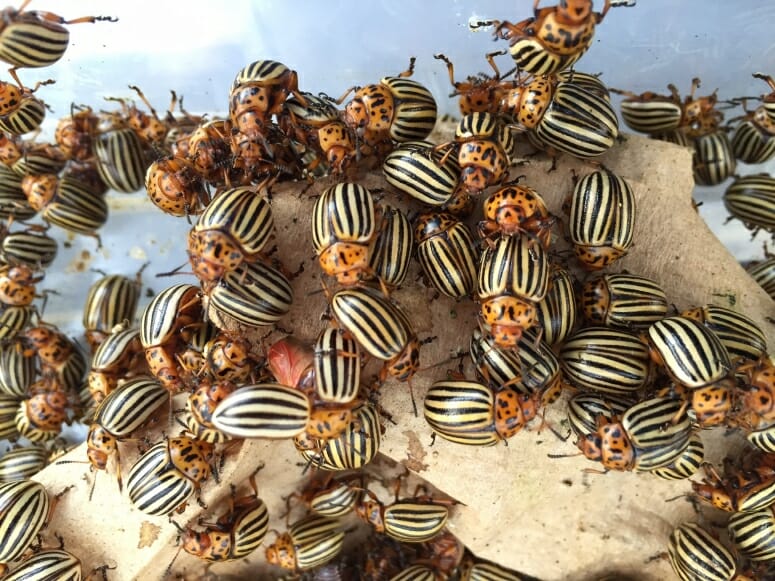The Colorado potato beetle is notorious for its role in starting the pesticide industry — and for its ability to resist the insecticides developed to stop it.
Managing the beetle costs tens of millions of dollars every year, but this is a welcome alternative to the billions of dollars in damage it could cause if left unchecked.
To better understand this tenacious pest, a team of scientists led by University of Wisconsin–Madison entomologist Sean Schoville sequenced the beetle’s genome, probing its genes for clues to its surprising adaptability to new environments and insecticides. The new information sheds light on how this insect jumps to new plant hosts and handles toxins, and it will help researchers explore more ways to control the beetle.











